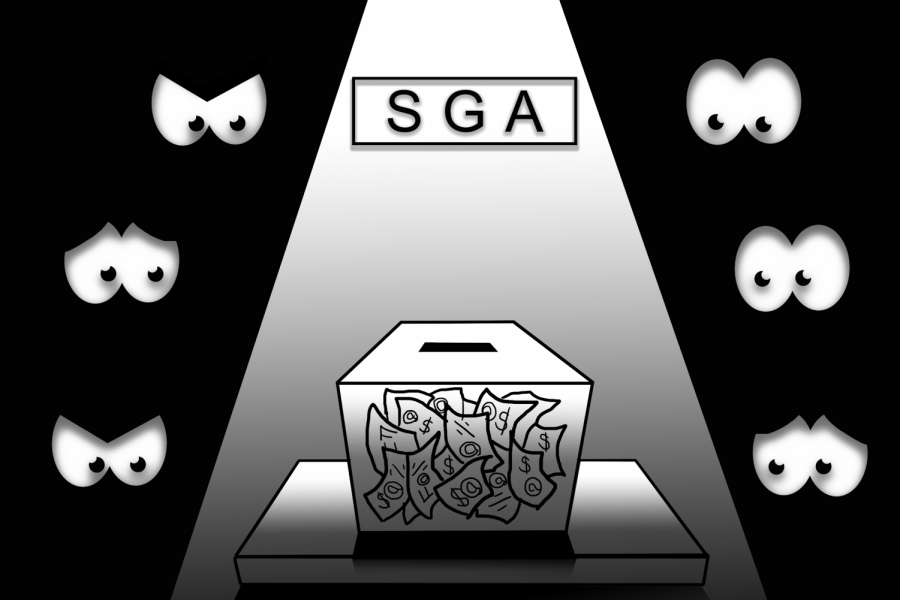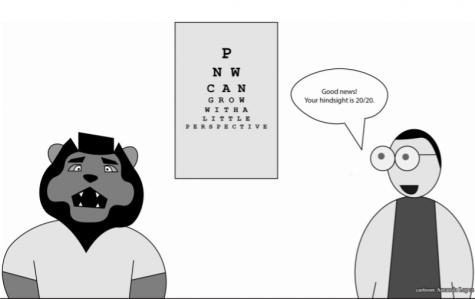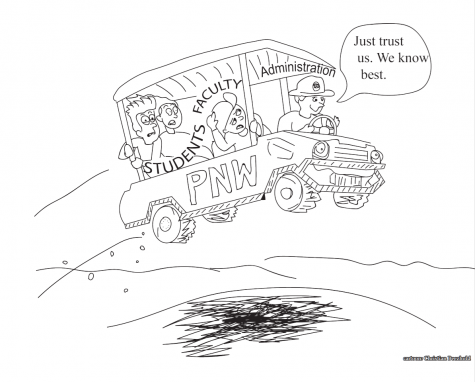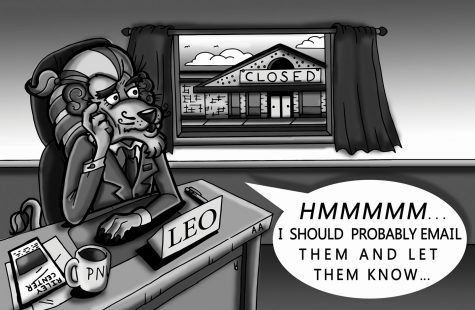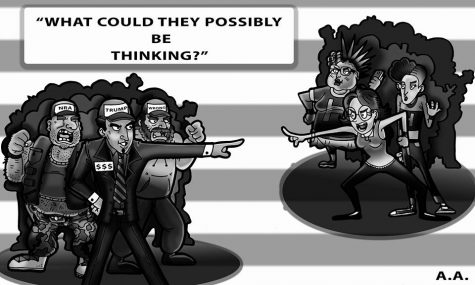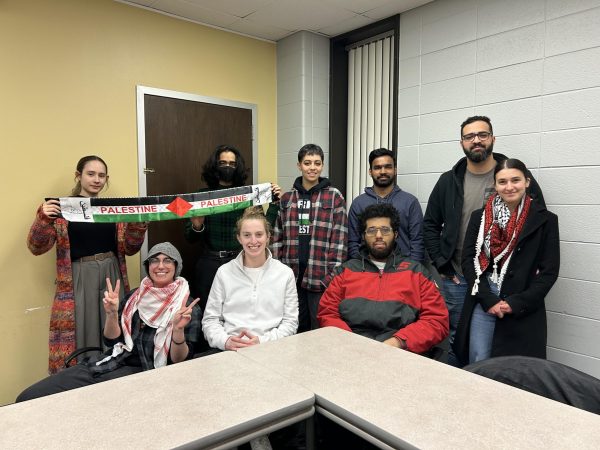Editorial: SGA incommunicado during election confusion
Plastered all over the Hammond and Westville campuses are posters for student government presidential, vice-presidential and senate campaigns. Present on these posters — underneath the names of the individual candidates — are the Student Government Association election dates: March 26-30.
On March 26, however, no ballot was released, and no announcement was made about changes to voting.
In a university-wide email sent on March 28, Meg Rincker, SGA faculty adviser, announced that SGA elections would not occur as planned. Her reasoning: concerns about the election process.
Following this email, the Pioneer repeatedly tried to decipher the vague comments and understand the context of this email. The result: a series of declined comments and “I don’t know’s” from members of SGA. The voting process for an election that had been advertised for weeks, by both the candidates involved and the organization, was suddenly postponed with no surrounding information provided.
According to an investigation by the Pioneer, the election was postponed because Eric Taylor, SGA presidential candidate, was disqualified for slanderous comments and flyer posting violations. When those involved with SGA, including Rincker and Anna Duley, elections chair and current vice president, were given a chance to comment on such matters, they again were unavailable or declined to do so.
The initial reaction to this news may be confusion by students, but if one looks at the history of SGA, it is apparent that this situation and the series of events that have followed are actually consistent with the character of the organization.
In 2003, the Purdue University Calumet Chronicle wrote an editorial titled “A case study on SGA: How not to run elections.” The Chronicle reported that only 48 out of 8,470 students voted during the 2003 SGA elections. In the editorial, they cited a lack of communication between SGA and students as the main reason for such low voter turnout. Fifteen years have passed between that editorial being published and this editorial, and little in the way of beneficial change seems to have occurred surrounding SGA elections.
So, upon hearing the news of a possible indefinitely postponed election, the Pioneer is not surprised. Actually, on the contrary, we believe students have been conditioned to expect this type of dysfunctional behavior from SGA.
In fact, the current sitting president of the organization Daquan Williams did not run for the position. Instead, he was selected after his running mate De’Joie Simmons was removed from the position for abusing his power as a resident assistant which involved opening a locked, vacant conference room for an unauthorized party. Although Simmons disputed these events, he was replaced and ultimately left the university before the Fall 2017 semester. His presidency lasted approximately four months.
Prior to the Pioneer’s article about the events, SGA had not announced the switch in leadership. In fact, it was never formally announced that Daquan Williams had become president. It was only mentioned in an email on Aug. 14, 2017, that those interested in the Chief Financial Officer position should contact President Daquan Williams.
Williams and Simmons ran on ideas that the Pioneer-supported, such as the creation of a 24-hour workspace on campus and the display of different nations’ flags to ease the transition for international students. Now, a year later, neither the workspace nor the flags have been instituted (although Williams did attempt to complete these campaign promises).
This year, SGA did follow through with their proposed creation of a House of Representatives. The coalition will consist of volunteer representatives, with no voting power. It also passed the Active Shooter Video Requirement Act, which is slated to be reviewed by Faculty Senate on April 13. But, the internal passage of several bills over the course of a year that students rarely hear about calls into question the efficiency of the organization.
Williams, during his presidency, has been successful in the way he has reached out to students and interacted with faculty and staff. He has become a face and a voice for SGA, a role that has been largely vacant over the past years. But now, when communication is vital between the organization and the students, the signal has gone quiet.
To avoid another repeat of these circumstances, SGA will need to find its identity during a period when the university is itself going through growing pains. Unification has caused every portion of the university, from colleges to organizations, to reconfigure. It is apparent that SGA must now do the same.
SGA can start by asking themselves a fundamental question: How can we change to serve the students better — the students who pay for our organization via their tuition?
The answer, we believe, should include a more efficient system of student representation, an attempt to increase awareness about what SGA does and why it does it and increased transparency during moments such as postponed elections. Reciprocal communication is at the very core of representation, and without improvements to SGA’s communication methods, the list of SGA blunders will continue to grow.


